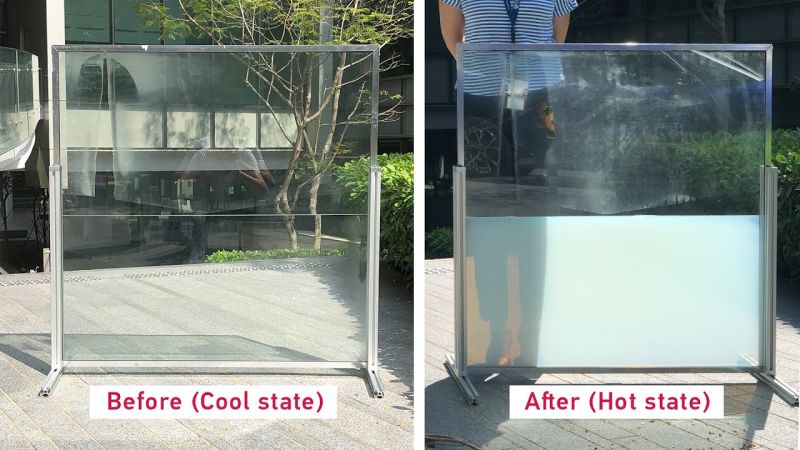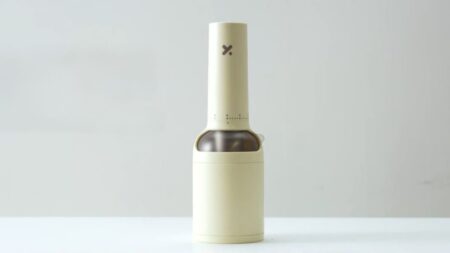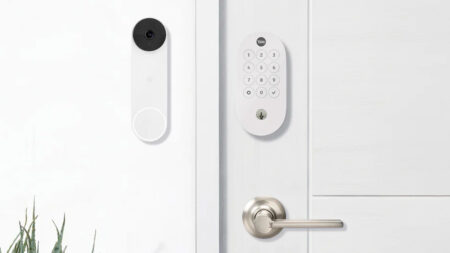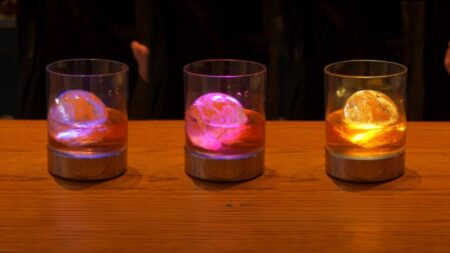There are a variety of window treatments to conserve energy in buildings including window shades and curtains; however, it’s an experimental energy-saving smart window developed by researchers from the Nanyang Technological University (NTU) that is garnering attention lately.
These window panels are like double-glazed windows, except the gap between the panes is filled with a heat-absorbing, light-blocking liquid for better energy saving.
Wang Shancheng, the first author of the study explained,
Sound-blocking double glazed windows are made with two pieces of glass which are separated by an air gap. Our window is designed similarly, but in place of air, we fill the gap with the hydrogel-based liquid, which increases the sound insulation between the glass panels, thereby offering additional benefit not commonly found in current energy-saving windows.
This liquid window panel can block sunlight and also store thermal heat, which will be released later for reducing energy consumption. They have placed a hydrogel-based liquid within glass panels that reduce up to 45-percent of heating, ventilation, and air-conditioning requirements. Furthermore, it is 30-percent more energy efficient than commercially available low-emissivity glass, while cheaper to make.
Unlike conventional energy-saving low-emissivity windows that do not regulate visible light, these window panels are filled with a mixture of micro-hydrogel, water, and a stabilizer that responds to change in temperature and react accordingly. When exposed to the sunlight, the liquid mixture turns opaque to block sunlight and when cooled down, it comes back to the transparent state.
Also Read: UbiQD Develops Transparent Solar Window Panels Using Quantum Dots
As per initial testing, these smart window panels consume 11-percent less energy to maintain the same temperature compared to the room with a normal glass window. Soundproof tests also suggest that these smart liquid windows can reduce noise 15-percent more effectively than double-glazed windows.
The thermo-responsive optical property (90% of luminous transmittance and 68.1% solar modulation) together with the outstanding specific heat capacity of the liquid mixture gives these smart windows the ability to save more energy.
The research team is now looking to collaborate with industry partners to commercialize the smart window.

Via: NTU
Follow Homecrux on Google News!




